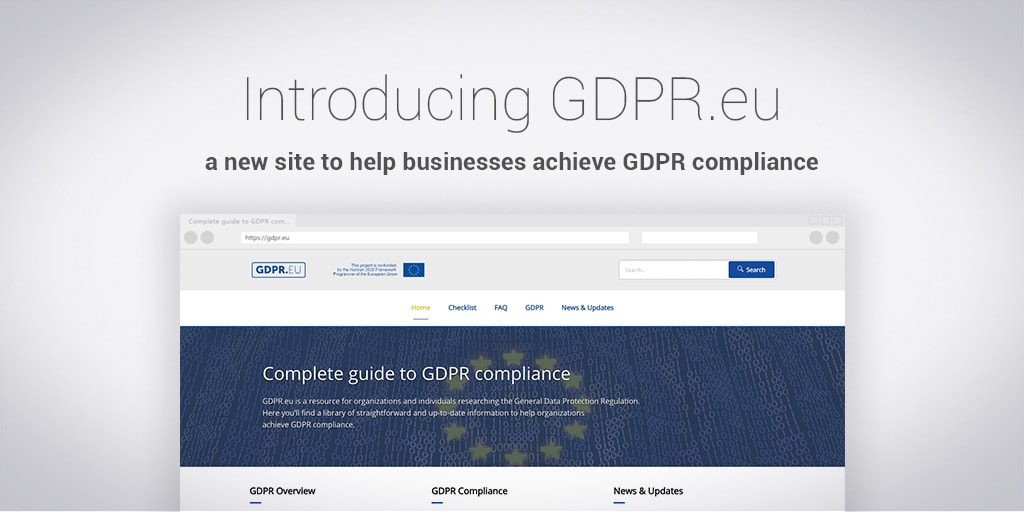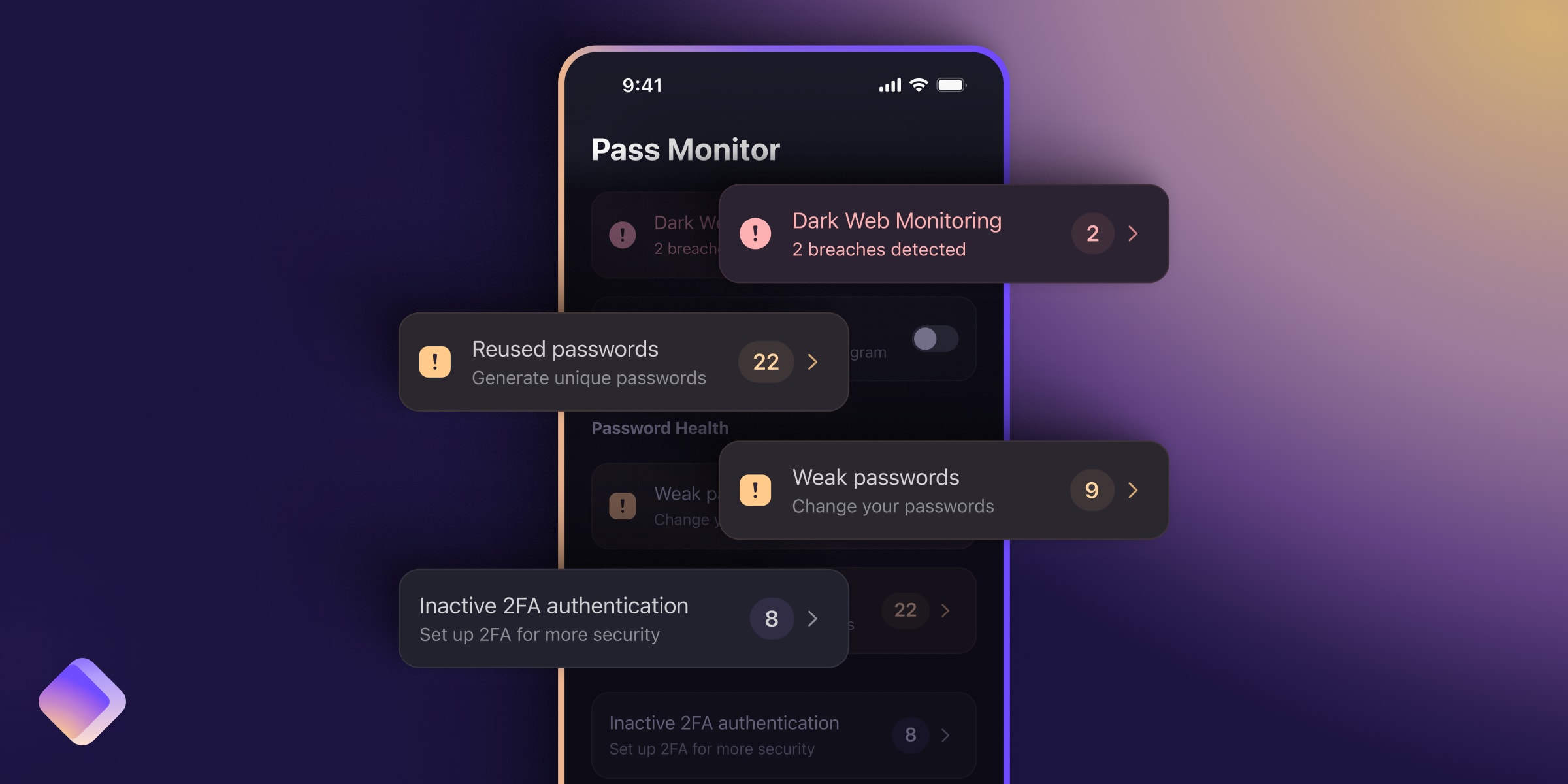The General Data Protection Regulation is the world’s toughest data privacy law, threatening enormous fines to violators. Yet businesses have few good resources to help them comply. GDPR.eu(new window) is here to change that.
The European Union created the GDPR(new window) to help individuals achieve a greater degree of privacy and data security online. It was meant to curb data breaches, which drain billions from the economy each year and expose citizens’ sensitive information to hackers. And it gives individuals more control over how companies use their data.
While the GDPR is great for people, it hasn’t been so easy on businesses. Last year, we asked 101 business leaders about their GDPR checklist compliance(new window) and discovered that even six months after the law went into effect, a majority of businesses are not fully compliant. And it’s not for lack of effort. They have invested thousands (and sometimes hundreds of thousands) of dollars on GDPR compliance, and most say they still don’t fully understand the law.
The main problem is the lack of quality resources. Inadequate understanding of the law remains the greatest obstacle to compliance for small- and medium-sized businesses. Despite an overwhelming number of articles about the GDPR on the Internet, few are actually straightforward and relevant. Owners and managers of small businesses told us they wanted clear guidance on how to achieve proper GDPR compliance(new window). Businesses want practical information they can actually use. As one manager of a retail company in London told us, “GDPR is a lot harder in practice than in theory.”
Solving this problem is why we created GDPR.eu.
What is GDPR.eu?
GDPR.eu is meant to be the definitive resource on GDPR compliance topics. The information is not the high-level overviews that you might find on some corporate blogs, or the hard-to-understand jargon put out by some law firms. Instead, it is an easy-to-understand, comprehensive, and practical guide written by people who have gone through the actual process of making a business fully compliant with the GDPR.
GDPR.eu does not only contain news and information about the EU’s General Data Protection Regulation. It includes a GDPR compliance checklist and the full text of the GDPR(new window) itself, which is easily searchable so you can find any passage using keywords. This is one of the only fully searchable online copies of the law, and if you have ever tried to find something in the GDPR law itself, you will have a better appreciation for this.
The site also contains detailed guides on specific topics, such as how to comply with the “right to be forgotten(new window),” what is a Data Protection Officer(new window)(and who needs one), and how GDPR fines(new window) are determined.
Finally, we have also published examples of a number of GDPR forms that are essential for businesses to comply with the GDPR. Some of the sample forms available for download include a GDPR-compliant privacy notice(new window), a sample GDPR Data Processing Agreement(new window), and a sample GDPR right to erasure request form(new window). Unlike other samples you might find online, these are actually used in business and have been vetted.
Going forward, we will continue to update the site with more guides, as well as news and analysis(new window) as EU regulators begin to interpret and enforce the law. We will also conduct original research to make sure we’re answering questions about the GDPR that you actually want answered, while gaining deeper insight into GDPR compliance.
Why is Proton Mail working on GDPR.eu?
As the world’s largest encrypted email service with millions of customers worldwide, complying with the GDPR(new window) was essential for us, given that nearly 40% of our customers come from the EU. Even as a Swiss company, we are not exempt from compliance (in fact, nobody is exempt(new window) if you have EU customers). For this reason, over the course of 2018, we expended significant effort ensuring that Proton Mail and Proton VPN would be fully compliant with the GDPR.
GDPR.eu is the culmination of the lessons we learned during our own GDPR compliance process. We want the research we have done to not only be a resource for ourselves but a resource for the whole world, so we can collectively move toward a more private and secure Internet.
This is also fitting considering that in 2018, Proton AG was co-funded by the Horizon 2020 Framework Programme of the European Union, which was created to stimulate entrepreneurial research and innovation. One important area of focus is cybersecurity and privacy, and we believe the GDPR and similar regulations are an essential step toward creating a safer Internet.
The GDPR.eu project is part of our mission to raise awareness about data security and expand the use of cryptographic tools. Whether it is working with journalists(new window), educating the public(new window), or partnering with civil society organizations(new window), a more secure and private Internet is only possible by combining technology development with educational initiatives.
Businesses—and especially small businesses—have always been particularly vulnerable to information security challenges and stand the most to gain by implementing data protection standards required under the GDPR, such as encryption. We believe data protection principles should be easy to implement and should not come at the cost of business growth. It’s our mission with GDPR.eu to help business leaders find such solutions.
Please feel free to share your feedback with us at contact@gdpr.eu or on our social media pages below:
You can get a free secure email account from Proton Mail.
We also provide a free VPN service(new window) to protect your privacy.
Proton Mail and Proton VPN are funded by community contributions. If you would like to support our development efforts, you can upgrade to a paid plan. Thank you for your support!














